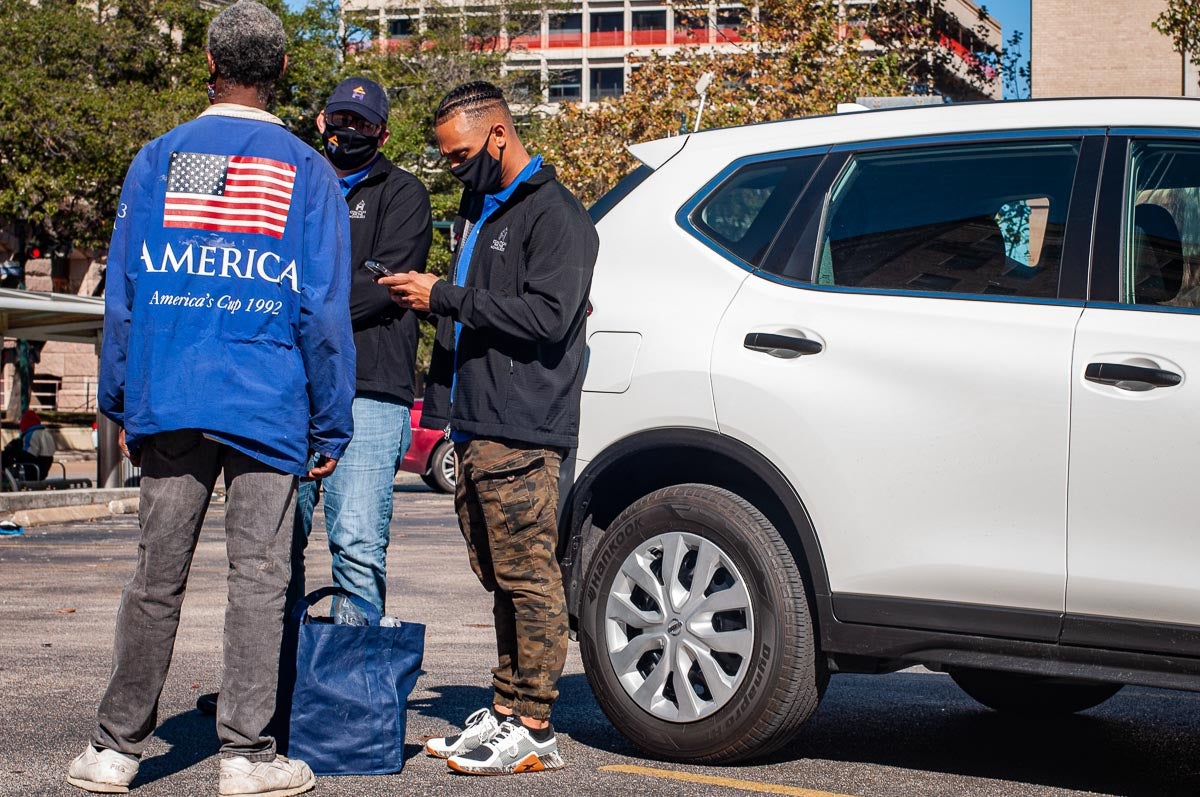This is part of an occasional series on affordable housing solutions coinciding with the recent release of Harris County's affordable housing study. View other posts in the series.
In 2012, Houston got a wake-up call from the U.S. Department of Housing and Urban Development (HUD). HUD declared Houston a “Priority Community” because we were doing a poor job combatting homelessness. But instead of wringing our hands, we rolled up our sleeves and took advantage of the additional resources HUD had to offer us.
Houston is a national leader in ending homelessness. Not only did we become the first major city to declare an effective end to Veteran homelessness, but overall homelessness in our region has declined more than 50% since 2011. (“Effective end” doesn’t mean that no Veterans will ever fall into homelessness again; it means that we have built a response system that can provide permanent housing within 30 days to any Veteran known to be experiencing homelessness.)
The local homeless response system in Harris, Fort Bend, and Montgomery counties, called “The Way Home,” has housed more than 24,000 people since 2012. And our data show that once people are housed, they remain housed: Of the clients housed in the past two years, over 90% have maintained stable housing or have not returned to homelessness.
We attribute our collective success to a number of factors, among them: collaborative leadership and buy-in among local elected officials and local direct service provider agencies; a strong reliance on good data to drive decision-making; and an emphasis on prioritizing the most vulnerable for access to those programs first. We follow Housing First, a nationally recognized best practice that involves providing housing to people with no preconditions (e.g., sobriety) and then offering voluntary supportive services to help them maintain their housing.
Perhaps the most important key is our community’s commitment to investing all available homelessness resources toward permanent housing with supportive services. HUD defines permanent housing as “community-based housing without a designated length of stay in which formerly homeless individuals and families live as independently as possible.”
Our local homeless response system offers two types of permanent housing: Permanent Supportive Housing (PSH) that is prioritized for our most vulnerable people and has no length of time limits, and Rapid Re-housing (RRH) that is targeted for those who fell into homelessness recently and is shorter-term in length.
There are three key components to permanent housing in our community: (1) rental assistance, (2) case management and other voluntary services, and (3) a physical housing unit. A small number of our community’s permanent housing programs are in apartment complexes dedicated to our clients, sometimes called “single site” properties. The majority of our permanent housing programs though are located in fair market apartment units at any apartment complex willing to partner with The Way Home, referred to as “scattered site.”
This means that the homeless response system is dependent on the creation of affordable apartment units because those properties are the ones most willing to work with the system and direct service partners who are implementing permanent housing programs. In fact, a barrier we’re facing right now is that we urgently need more one-bedroom, all-bills-paid apartment units to continue to house our clients.
So how many housing units do we need?
Earlier this year, the Coalition released The Way Home’s Community Plan to End Homelessness. To produce the plan, we studied the gap in available housing resources for single adults, youth, and families experiencing homelessness. The single largest gap we found was a shortfall of 1,900 units of permanent supportive housing for single adults and youth. In other words, this means with 1,900 affordable apartment units, we could effectively end homelessness in Houston.
The federal funding for COVID-19 relief presents a big opportunity. In July 2020, the City of Houston, Harris County, and the Coalition for the Homeless announced a joint, $65 million plan to use CARES Act pandemic relief funding to house as many people as possible, as quickly as possible in market rate units over two years to limit the spread of COVID-19. The Community COVID Housing Program (CCHP) is an unprecedented, coordinated effort to address homelessness in the region.
One year in, we’ve already served more than 5,000 people, but additional future investments, particularly in infrastructure, will be necessary to end homelessness for good. The need for 1,900 new units of permanent supportive housing remains. We are currently in conversation with local leaders to determine whether subsequent rounds of pandemic relief funding, like in the American Rescue Plan, can be used to invest in infrastructure to achieve and sustain reductions in homelessness.
To say that a lack of affordable housing contributes to homelessness would seem to be stating the obvious: If people can’t afford housing where they live, they fall into homelessness. But for those who don’t work on the issue, it may be less obvious that a lack of affordable housing also presents a barrier for the agencies seeking to help people get out of homelessness.
The Coalition is committed to being an advocate for the continued development of affordable housing throughout Harris, Fort Bend, and Montgomery counties because without available, safe, and affordable market-rate apartments, we cannot provide a home for people trying to leave homelessness.
Mike Nichols is president and CEO of the Coalition for the Homeless of Houston/Harris County.
The views, information or opinions expressed in this post are those of the author and do not necessarily represent those of the Kinder Institute for Urban Research.

